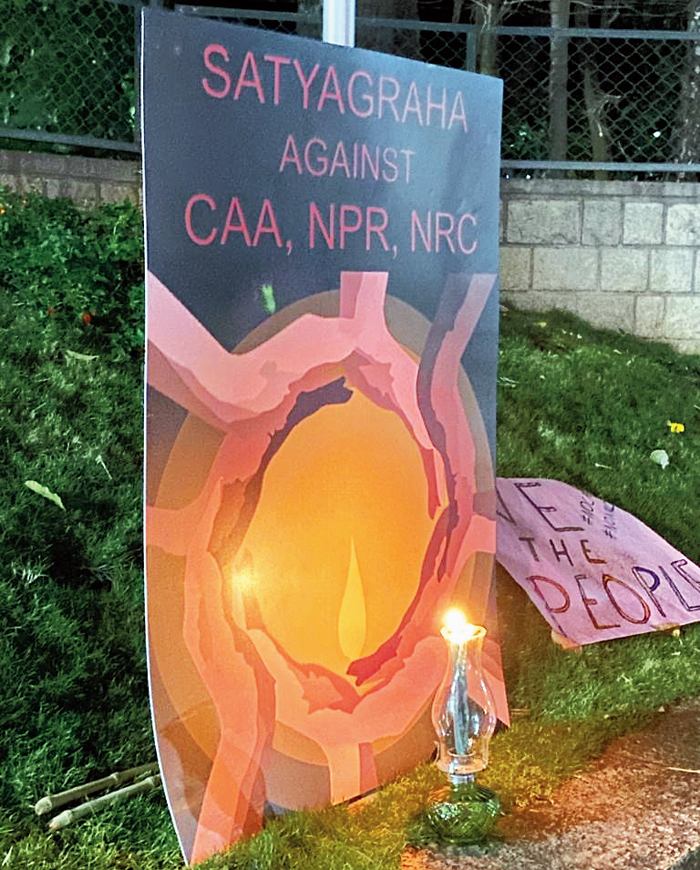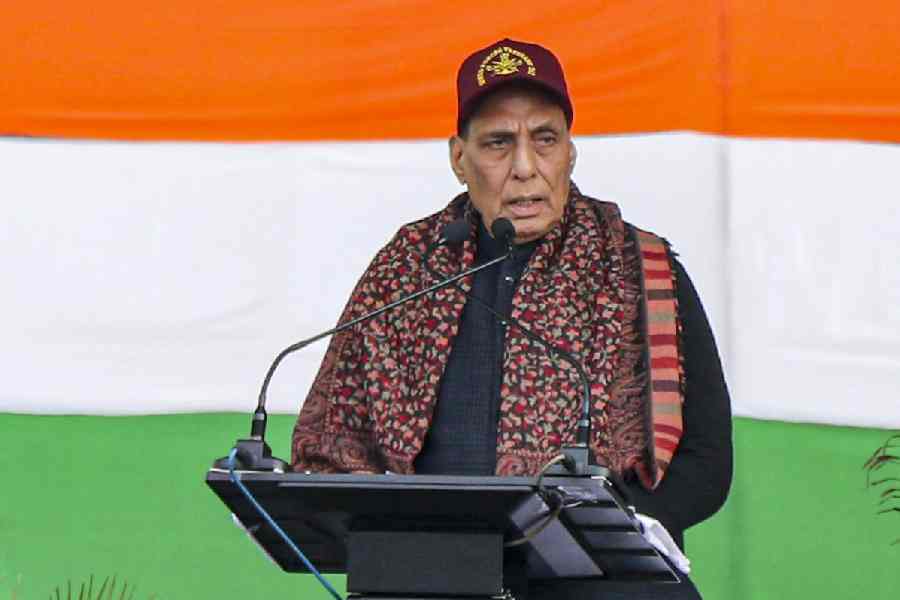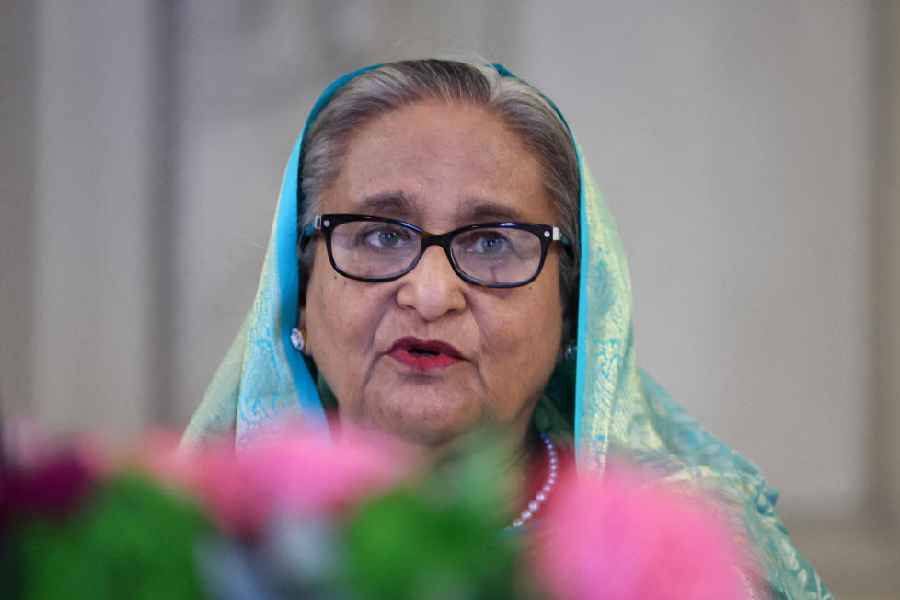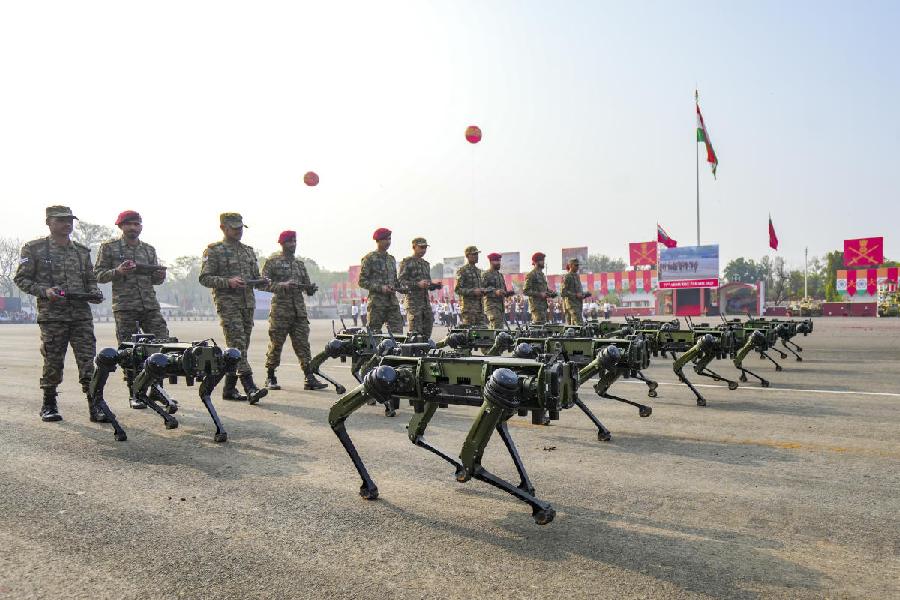Outside the main gate of IIM Bangalore, a lamp burns in front of a solo poster that reads: “Satyagraha against CAA, NPR, NRC.” Before it sit four individuals — students and teachers of the country’s leading business school. A few candles burn in front of them.
The silent vigil against the Citizenship (Amendment) Act, National Register of Citizens and the National Population Register began at 6.30pm on Sunday. By the time the 72-hour watch ends at 6.30pm on New Year’s Day, 67 students and faculty would have joined.
“We take turns to sit before the lamp of democracy, equality, justice and fraternity and make sure it glows throughout the 72 hours as our way of protecting what the Constitution stands for,” the senior-most faculty who is part of the vigil, Prof Malay Bhattacharya, told The Telegraph.
Police set a limit of four people at the vigil, he said. “So we thought it would be better to take turns,” he said.
There are no slogans or speeches, just four people sitting before the poster and lamp.
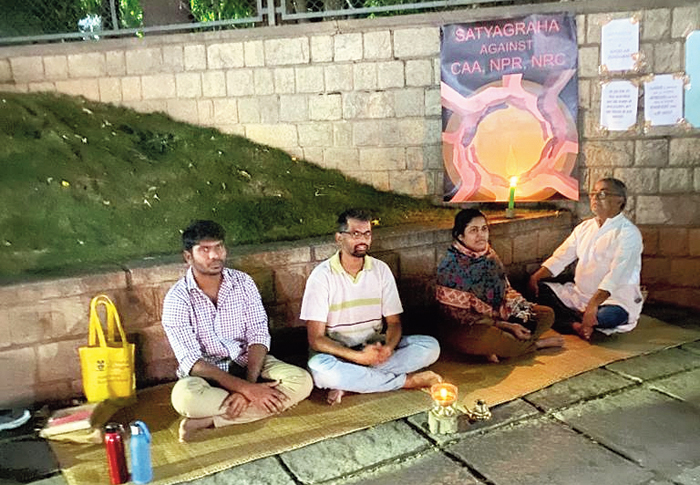
Students and faculty members at the vigil Telegraph picture
“Democracy is hard work and every generation must contribute to its nurturing. We believe the founding principles of our republic are under attack and it is the solemn duty of every citizen to resist,” reads a release issued by the protesters.
“The volunteers at the vigil are standing in their personal capacity,” the release says.
Bhattacharya, who participated in the protests against the Emergency as a university student, said he has not seen anything like what is happening around the country and its universities now.
“What we are seeing is unprecedented. I have not seen such a situation, although we did not have television and had to rely only on newspapers during the Emergency days,” he said.
The statement issued by the volunteers said: “Taken together, the CAA-NPR-NRC troika has spread sectarian and communal poison across the length and breadth of our country. During this silent, peaceful protest, we will each be vigilant guardians protecting the symbolic flame of democracy that is fragile, yet brilliant.”
This is not the first protest against CAA and NRC by the institute’s students and faculty, Bhattacharya said. “We first sent letters to MPs and MLAs registering our protest,” he said.
When prohibitory orders were enforced in the city on December 19, the students left their footwear outside the gate. “It was the students who thought of this idea,” he said. “A couple of days later we left blank chart papers instead of posters. Our point was that we didn’t want to disturb peace, yet register our protest.”
The statement also speaks against the “state-led violence in different parts of the country, and especially in Uttar Pradesh.”
“We believe democracy is strengthened when citizens rise in defence of constitutional principles and bear witness. We condemn the impunity with which guardians of the republic have used state power to divide people and suppress dissent,” it added.

